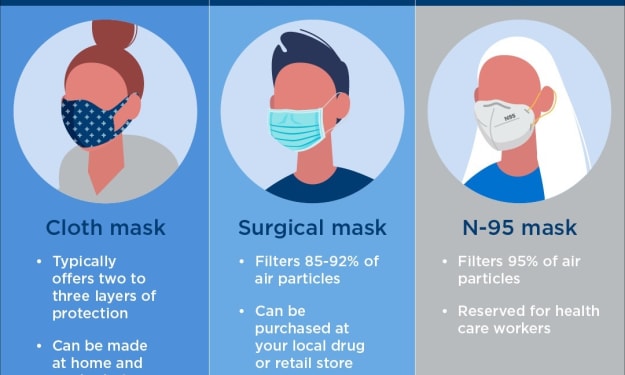
N95 mask, also known as N95 filter respirator, is an air filtration respirator that complies with the U.S. National Institute for Occupational Safety and Health (NIOSH) classification of air contaminants, which means that it effectively filters at least 95 percent of airborne dust, debris, and allergens. Aside from this high standard, a lot of people choose N95 because it is available in different color designs. One of the most common choices among individuals who are purchasing N95 mask is to purchase one with a transparent display. This is because a lot of dusts and allergens are still invisible to the naked eye, which makes them very challenging to clean.
However, despite the popularity of N95 masks, some health care workers still choose not to wear them. These workers are often those working in settings that are highly affected by allergens. In these cases, it would be more practical for these healthcare professionals to use N95 mask with HVMA (High Visibility Masks) feature rather than using a mask with a transparent display. There are many reasons why these workers choose to use an HVMA rather than a standard N95 mask.
How surgical masks are used and different from other masks?
For surgical masks, one of the reasons that they are chosen by nurses and other surgical technicians is because it is more difficult for dust and small particles to enter into their mouth and throat. Although it may seem like a small thing, it actually increases the amount of time that medical professionals have to work without a respirator. N95 masks with an HVMA can prevent airway obstruction and keep small particles from entering into the airways while simultaneously providing superior comfort for the wearer.
N95 respirators also offer filtration efficiency compared to face masks. Both are effective in keeping allergens out of the air, but face masks are usually less efficient at reducing dust and mist droppings. As a result, they are more likely to clog hairpieces or hairnets, which are common in healthcare settings. N95 masks, on the other hand, are designed to efficiently remove up to 99% of microscopic particles from the air. This makes them better than their face masks in terms of filtration efficiency.
Although N95 surgical masks have been regulated to meet certain standards, healthcare workers are still concerned that these masks may not provide adequate protection. The American Society for Testing and Materials (ASTM) released a guideline in June 2021 that highlights the differences between surgical masks and N95 masks. According to this guideline, surgical masks should contain at least a 0.3 micron filter that can trap particles smaller than 0.5 microns. In addition to ensuring the effectiveness of the filter, this improves the wearer's comfort as well.
The benefit of breathing efficient material to make these masks
N95 masks are often made from materials that do not effectively capture airborne particles, such as vinyl. Some healthcare workers are concerned about the potential carcinogenicity of vinyl. For this reason, the EPA has defined a collection of benchmark air quality values, which it regards as the level of airborne particulates that would be expected to infiltrate a worker's nasal passages and cause respiratory irritation or disease. To meet this benchmark, manufacturers of N95 masks must reduce the amount of vinyl in their manufacturing processes. However, despite attempts to improve the vinyl content, many medical professionals argue that even the best masks will still contain too much vinyl for effective filtration.
Because it has become clear that N95 mask and other personal protective equipment cannot keep individuals safe from all sources of airborne particles, manufacturers of these products are turning to NPE (neither personal protective equipment nor N95) testing. NPE testing helps ensure that these products are free of asbestos and other dangerous particles. NPE testing is performed through non-chemical processes and does not rely on particle size as a criterion for testing. This means that NPE products can be made with or without asbestos materials. However, because asbestos is so prevalent in many construction and industrial fields, the inclusion of asbestos in NPEs may help ensure the protection of individuals from asbestos-related illnesses. One can simply buy these masks from websites like accumed.com.
About the Creator
Accumed
Health-care industry recommends these N95 mask for sale everyone because they are made with at least 95% of filtration efficiency against harmful particles.
Visit us:-https://accumed.com/






Comments
There are no comments for this story
Be the first to respond and start the conversation.